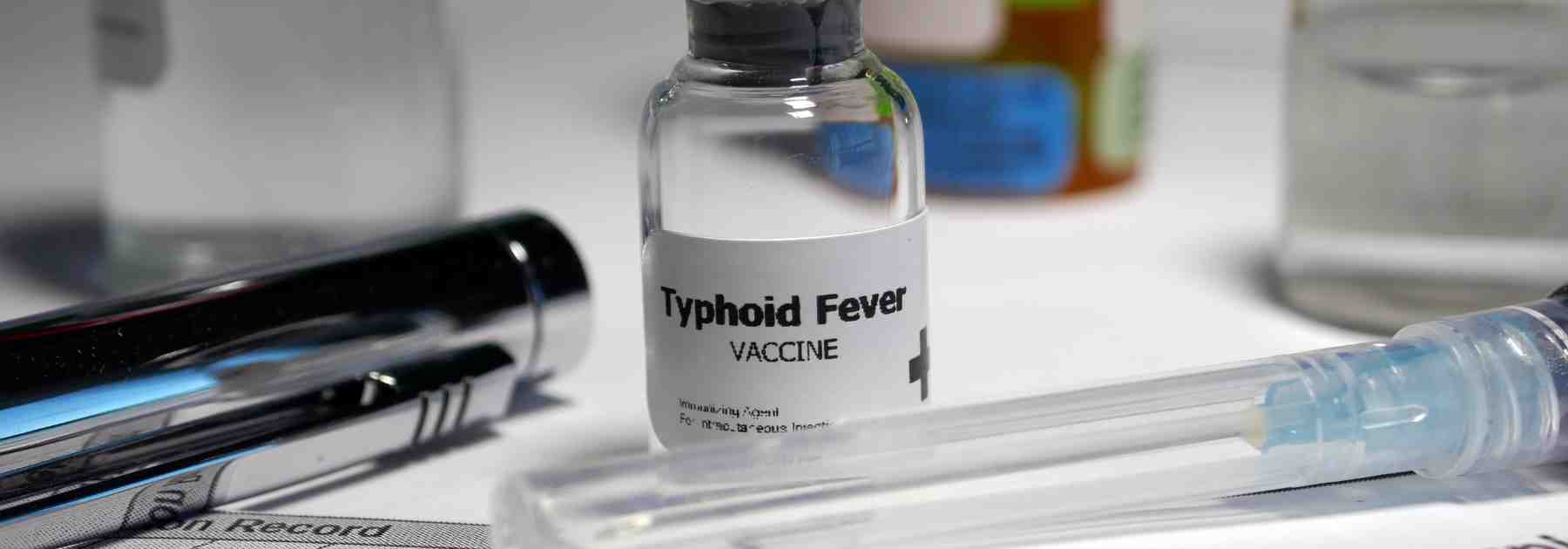Welcome to Seaton Pharmacy’s guide on the typhoid fever vaccine. If you’re planning to travel to areas where typhoid fever is prevalent, you might wonder: How long does a typhoid fever vaccine last?
Our FAQ-style blog covers the key questions about the vaccine’s longevity, effectiveness, and the best practices for staying protected. Read on to find out more from our travel clinic team…
1. What is typhoid fever, and why is the vaccine necessary?
Typhoid fever is a serious bacterial infection caused by Salmonella Typhi, typically contracted through contaminated food or water. While it’s rare in the UK, the risk significantly increases when travelling to regions with poor sanitation, particularly in South Asia, Africa, and Latin America. Vaccination is a highly effective way to prevent typhoid fever and avoid serious health complications. The vaccine is not 100% protective, but it greatly reduces your risk.
2. How long does a typhoid fever vaccine last?
There are two types of typhoid vaccines, each with a different duration of effectiveness:
Injectable Typhoid Vaccine (Vi Polysaccharide Vaccine): This injectable vaccine generally offers protection for about 2 to 3 years. For those regularly visiting high-risk areas, a booster every three years is recommended to maintain immunity.
Oral Typhoid Vaccine (Ty21a Capsule): This oral option, taken as a series of capsules over several days, typically provides protection for approximately 5 years. Like the injectable version, boosters are recommended every five years if continued protection is needed.

3. How effective is the typhoid vaccine?
While the typhoid vaccine is effective, it doesn’t provide complete immunity. On average, it reduces the risk of infection by about 50-80%, depending on the vaccine type and individual factors. Since neither the injectable nor oral vaccine provides absolute protection, it’s essential to practise good hygiene and be cautious with food and water in high-risk areas, even if you’re vaccinated.
4. Who should get the typhoid vaccine?
The typhoid vaccine is recommended primarily for:
Travellers: Anyone visiting high-risk countries, especially if planning long-term stays, travelling in rural areas, or visiting family where sanitation may be less controlled.
Individuals with high-risk jobs: Some healthcare or laboratory workers may also need the vaccine if they handle Salmonella Typhi or patients with typhoid fever.
Your GP or pharmacist can provide personalised recommendations based on your travel itinerary and risk factors.
5. When should I get vaccinated before travelling?
For optimal protection, it’s best to get vaccinated at least 2 weeks before travel. This allows your body time to develop immunity. If you’re taking the oral vaccine, you’ll need to complete the four-dose series one week before departure, so plan accordingly.
6. What are the common side effects of the typhoid vaccine?
Most people experience mild side effects, if any. For the injectable vaccine, some might notice redness, soreness, or swelling at the injection site. A few might experience low-grade fever, headache, or fatigue. The oral vaccine can sometimes cause mild gastrointestinal discomfort, such as nausea or abdominal pain.
Side effects generally resolve on their own within a few days. If you’re concerned about any symptoms after vaccination, don’t hesitate to consult our pharmacists at Seaton Pharmacy for advice.
7. Can the vaccine be taken alongside other vaccines?
Yes, the typhoid vaccine can generally be given alongside other travel vaccines, such as hepatitis A or cholera, depending on your travel plans. However, you may need to space out certain vaccinations for optimal effect, so it’s essential to discuss your travel plans with a healthcare professional well in advance.
8. What should I do if my typhoid vaccine has expired?
If it’s been over 3 years since your injectable typhoid vaccine or 5 years since your oral vaccine, you’ll need a booster to stay protected. Check your vaccination history and plan for a booster before any future travel to high-risk areas. Our pharmacy team can help you determine when your last dose was and advise on the appropriate timing for a booster.

9. Are there other ways to protect myself from typhoid fever while travelling?
The typhoid vaccine is a powerful preventive measure, but other precautions are essential:
Drink only bottled or boiled water: Avoid tap water, ice, and any beverages prepared with unboiled water.
Choose safe food options: Avoid raw or undercooked foods, especially meats and seafood. Stick to foods that are freshly cooked and hot.
Practise good hygiene: Wash your hands frequently with soap and water, especially before eating and after using the bathroom.
By combining the typhoid vaccine with these safety practices, you can minimise your risk and enjoy a safe, healthy journey.
10. How can Seaton Pharmacy help me with my travel health needs?
At Seaton Pharmacy, we provide a full range of travel health services, including consultations, vaccinations, and personalised advice. If you’re preparing for travel, our team is here to answer questions about the typhoid vaccine or other recommended vaccines, ensuring you have everything you need for a safe trip. We’ll review your health needs and travel plans to create a tailored plan, making sure you’re protected against typhoid and other common travel-related illnesses.
In Summary
How long does a typhoid fever vaccine last? For most people, the injectable vaccine lasts about 3 years and the oral vaccine around 5 years. By keeping track of your vaccine status, planning boosters when necessary, and practising good hygiene, you can significantly reduce your risk of contracting typhoid fever. If you have questions or need a booster, contact Seaton Pharmacy today to book an appointment and travel confidently.

Stay safe and informed—your health is our priority!
This blog was written on behalf of Seaton Pharmacy by Pharmacy Mentor.

